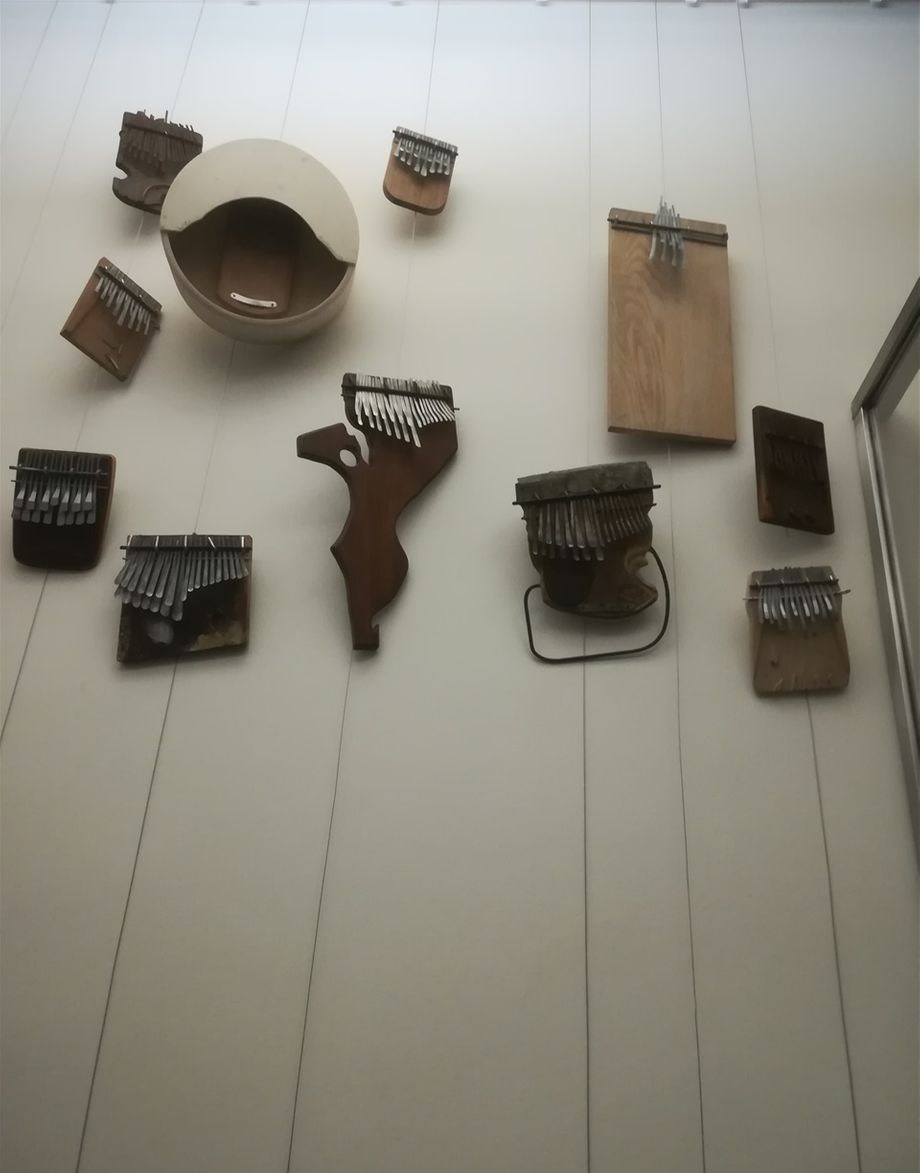Mukhambira
Quest for Knowledge as Solutions to Global Problems! Creativity is the Way!
Education
As an impact of colonialism and an indices of prevailing coloniality, the Concept of Education continues to be challenged, thus confusing colonized Africans, and disadvantaging the development and sustainability of African cultures -For many education is only the one that is administered in the Western form of schools, teaching Wesetern contents in Western approaches, which is, actually, misaligned with the reality of Africa.
Thereafter, came a conceptual differentiation between what became to be known as formal from informal education. Informal education, therefore, refers the one given to children by their parents at home, family, and the community as a whole.
It should be observed that the so called informal education, is the very one that has been sustaining people for thousands of years, fostering their harmonious and ecological interaction with their environment. It is through this form of education that the children learn relevant skills required in their daily life, e.g. boys learn to build houses, to make house utensils, to forge iron or carve wood and make the various tools, while girls learn how to look after the house, nurse the children, process crops, and both learn about the various principles, social norms, history, social relations, interaction, etc.
However, this education format is, unfortunately, downplayed, a fact which affects their identity, and results in the desintegration of the society, devoiding its members from a common cultural ground, which promotes interpersonal misunderstandings and conflicts within family and society; derpives the members from the prioritary and relevant skills that they need in their daily life, thus, relying on imported knowledge, technologies, and products.
The image below, whose subtitles provide additional testemonials, is a documentation of a so called "informal school", at the late Ernesto Mathusi's home, where after "formal" school, children learn how to build and play musical instruments and other household untensils.
Education
Marimba lessons with students from the Hochschule für Music Franz Liszt Weimar.
https://musikwissenschaft.univie.ac.at/detailansicht/news/gastvortrag-luka-mucavele/?tx_news_pi1[controller]=News&tx_news_pi1[action]=detail&cHash=dc714f80be20d90c1c62ab535d997142&fbclid=IwAR0aj8G9uf29epbugLi3pT6598-wUI41qI-HLSYiat9r8WY2HU79ob3uAP0
Novas Perspectivas e Abordagens no Estudo de Músicas Africanas (Video temporarily unavailable)
Ressonâncias Atlânticas 19 April at 19:56 · Nesta quinta 22/04 às 14h30 receberemos o ilustre artista musical, musicólogo e construtor de instrumentos moçambicano Luka Mukhavele com sua palestra "Novas Perspectivas e Abordagens no Estudo de Músicas Africanas”, compondo o ciclo "Matizes Musicais da Música Brasileira”. Link para a transmissão: https://youtu.be/zBEN_VfnZUk Luka Mukhavele é o multiinstrumentista e pesquisador fundador do ateliê Mukhambira Musical, pilar central na história da mbira em Moçambique, que investiga música e instrumentos musicais tradicionais, sobretudo moçambicanos e africanos. Mukhambira propiciou a construção, disseminação, ensino e reavivamento de lamelofones em Maputo e posteriormente por todo Moçambique. O projeto pioneiro desenvolveu seus próprios métodos, utilizando e integrando tecnologias e sistemas de conhecimento modernos e indígenas de maneira criativa e, ao mesmo tempo, científica, para criar novos modelos de mbira. Atualmente, Luka desenvolve sua tese de doutorado "Desafios e Potencialidades dos Instrumentos Musicais Traditionais em Contextos Contemporâneos: Xizambi, Mbira, e Xim- bvokombvoko" na Universidade de Música Franz Liszt de Weimar, Alemanha. https://www.mukhambira-musical.online Matizes da Música Brasileira traz especialistas, em sentido amplo, em matizes ibéricos (Napoleão Ribeiro), africanos (Luka Mukhavele), árabes (Márcia Dib) e indígenas (Marlui Miranda) para compartilharem seus saberes dentro da disciplina de Pós-Graduação em Música da UFPB “Ressonâncias Atlânticas na Música Brasileira” ministrada por Nina Graeff, para que ressoem com as experiências musicais dos estudantes. sobre práticas que cruzam o oceano atlântico e o território brasileiro, se multiplicando na sua diversidade musical. A iniciativa faz parte do projeto de Iniciação Científica “Ressonâncias Atlânticas” da UFPB.
Luka Mukhavele and Dizu Plaatjies at the Bow Playing Workshop at KZNSA Gallery. Photo by Val Adamson
Mathusi and Maneto, at the University of Kwazulu Natal, 24-27 February 2016, brought to the First International Bow Music Conference by Mukhambira.
African Musicology: Marimba, Mbira, and Musical Bows in a Contemporary Global Context: Use of the Tablature for the study of the Nyunganyunga Mbira
For analysis and academic purposes a tablature has been developed, which enables the transcription of mbira music in a graphical format. The numbers on the keys are written in the boxes of the tablature, in the sequences and/or combinations that the corresponding key are plucked for each tune; and, the pitches available on the instrument are indicated on each key, in the image below.
Klingende Objekte
Celebrating the 10th anniversary of the Transcultural Music Studies, the University of Music Franz Liszt Weimar, put up the exhibition Klingende Objekte (Sonorous objects) at the Main Building of the Friedrich-Achiller-University Jena, in Germany.
As part of our academic work, Mukhambira, is here presenting part of the lamellaphone produced in Mozambique and in Germany, by Luka Mukhavele, 2 by Ivan Mucavel, and 1 by Ozias Macoo.
The one in the resonator, built in Germany, has been used by Jordan While, an Australian Master's student in “New Music”/Jazz, specializing in guitar at Franz Liszt, whom I directly quote below,
"As part of my Masters I've had to do a bit of electronic composing. This has opened up a whole new world for me and has been quite fun. I'm not particularly good at it yet but I'm learning a lot. Here's the first piece I'd consider vaguely presentable! Thanks to Luka Mukhavele for lending me the mbira. (26.07.2019)"
The recording can be accessed through the link below:
Multi-class Sonorous Object
The image below presents a dadactic sonorous object, representing the four classes of acoustic musical instruments, namely: Idiophone, Membranophone, Chordophone, and Aerophone, in one unit.
The object is meant to demonstrate the sources of sounds for all acoustic musical instruments up to date known to Manking, in this case, with the exception of Electrophones, which, functioning on electricity, are a more recent invention. The classification system is known as the Sachs-Hornbostel or Hornbostel-Sachs musical instrument classification system, and is the most used in academic purposes.
Mukhambira in the Klingende Objekte Exhibition
During a lecture with Master's students from Bauhaus Universität Electroacoustic and the University of Music Franz Liszt Weimar
. Note: Still working on the link. To view, please copy and paste address below to address bar
https://documentcloud.adobe.com/link/track?uri=urn%3Aaaid%3Ascds%3AUS%3A7e43c3e8-dbc0-4b3e-a1cd-84e8d2487e8e
Lecture at the Chines Central Conservatory of Music, in the Conference one the Music of Africa and the World
![https://musikwissenschaft.univie.ac.at/detailansicht/news/gastvortrag-luka-mucavele/?tx_news_pi1[controller]=News&tx_news_pi1[action]=detail&cHash=dc714f80be20d90c1c62ab535d997142&fbclid=IwAR0aj8G9uf29epbugLi3pT6598-wUI41qI-HLSYiat9r8WY2HU79ob3uAP0 https://musikwissenschaft.univie.ac.at/detailansicht/news/gastvortrag-luka-mucavele/?tx_news_pi1[controller]=News&tx_news_pi1[action]=detail&cHash=dc714f80be20d90c1c62ab535d997142&fbclid=IwAR0aj8G9uf29epbugLi3pT6598-wUI41qI-HLSYiat9r8WY2HU79ob3uAP0](/____impro/1/onewebmedia/i285134164473487630.jpg?etag=%221b68c-5db44839af051%22&sourceContentType=&ignoreAspectRatio&resize=880%2B490&extract=0%2B0%2B880%2B490)









